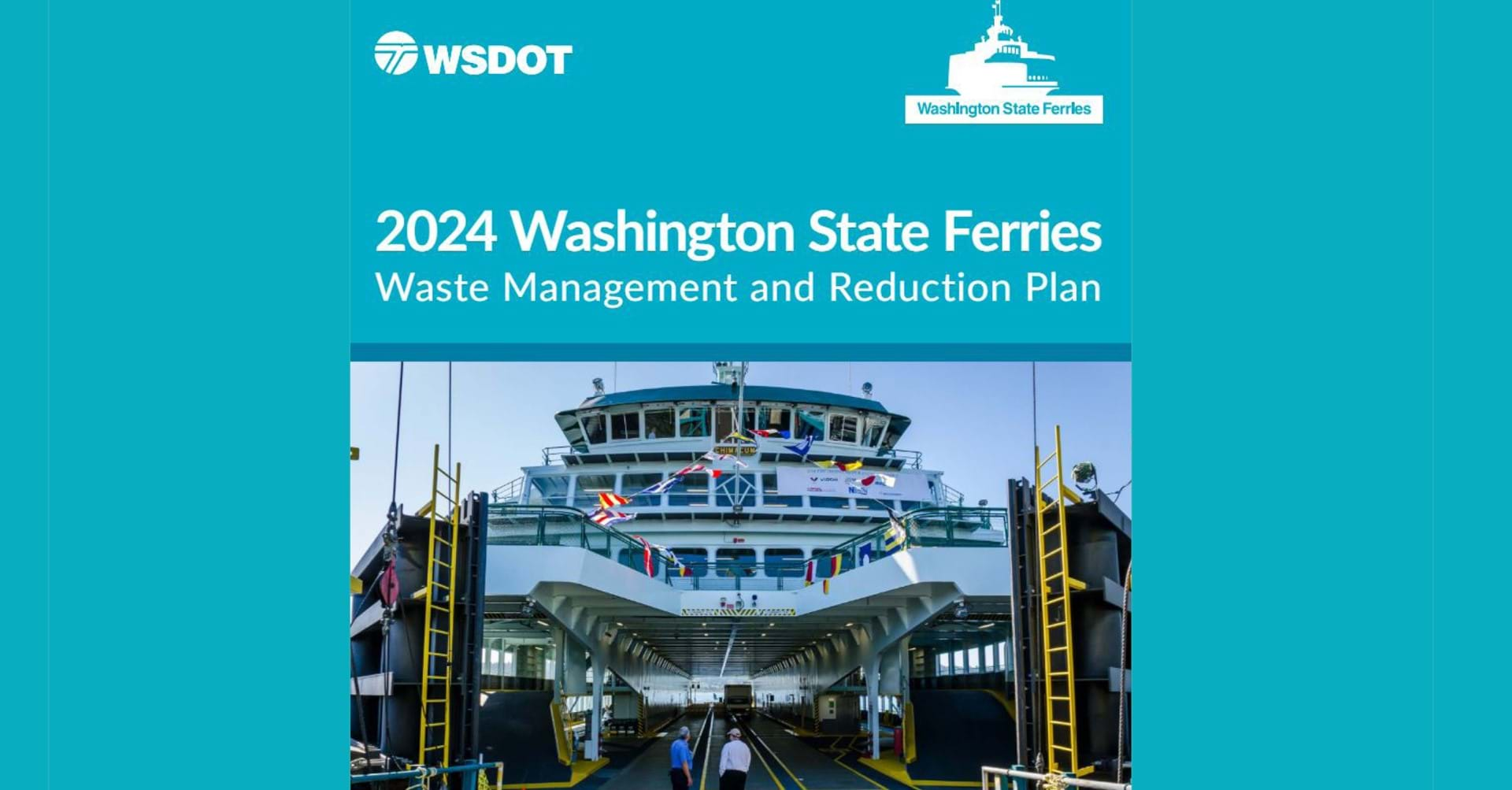
New plan sets Washington State Ferries on a zero waste objective
Washington State Ferries (WSF) has released its first Waste Management and Reduction Plan involving the input and collaboration of employees, waste vendors, non-profit organizations, food vendors and WSF’s served communities.
“This plan is one of the keys to move us towards our goal of zero waste by outlining our current state, the challenges we face and the actions we plan to take over the coming years,” says Steven Nevey, WSF’s executive director. “We look forward to working with internal and external partners, including our customers, waste service providers, vendors and communities we serve to reduce our use of plastics and other materials, reuse and recycle, and increase composting of food waste, as well as getting unsold galley food into the hands of those in need."
WSF began by establishing the status of its waste management and identifying the different waste streams to develop immediate actions and determine longer term recommendations towards a zero-waste goal. The reduction and overall diversion of waste are expected to have positive economic outcomes in reducing costs related to packaging, and environmental benefits in reducing pollution, particularly the methane caused by food waste in landfills.
The ferry service recognizes these challenges will involve a long-term commitment that may involve repeatedly seeking ways to further improve on established waste reduction actions and strategies. This plan is to launch this journey to action, repeated assessment and continual adjustments with measurable waste reduction being the indication of progress.
All the initial ground work is laid out in the full report.